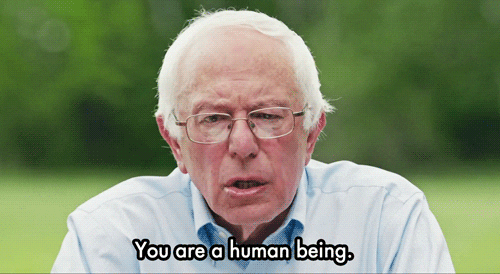
The Case against Free College written by Matt Bruenig addresses the subject matter through an emotional lens rather than a logical lens. As an Economist, it baffles me to see people take such a strong normative stance on a subject that they have little information about. When we look at economic issues, we need to look at positive economics which describes and explains various economic phenomena rather than how things should be in accordance to how someone feels. While Economics isn’t always morally attractive, it accurately explains how money flows and operates within a society. My stance on free college is that there is no such thing. While investing in human capital has a lot of proven benefits, I think it’s a bad trade-off and disagree with the idea of “free college” for that reason.
Nothing is free when it comes to government-funded programs. When politicians talk about “free college”, they mean that they are taking government funds from one sector, to give to another. It’s a matter of allocation rather than a decision to virtuously give. If they mention a proposed bill that allows the fiscal policymakers to print funny money, then Americans will all pay that back in the form of inflation. An example of that result would be the inflation we see today, due to the massive spending in covid relief we saw amidst the 2020 crash. The premise of the “free college” debate needs to be a debate of allocative efficiency rather than emotionally driven rambling, and attacks on someone’s perceived level of empathy. We need to ask logical questions, compare and contrast the pros and cons, and then decide on a solution that optimally benefits the betterment of the governed society.
If we give all students an education on the tax-payers dime, then we need to consider that there would be a deadweight loss. A deadweight loss is a cost to society created by market inefficiency. Students are currently incentivized to choose majors that possess economic utility post-graduation. If there is a high demand for the skill set they are studying, then they will be handsomely rewarded with a high wage. Students are much more likely to choose a major that has a high demand when they must stop and think about how to fund their college endeavors. They will need to make sure that their investment into college pays itself off and returns a high reward. A massive issue that would likely take place is that we would have an overabundance of college graduates who have useless skills that do not benefit the economy. If the financial burden doesn’t fall on the student, then they’ll study anything they like being ignorant of what the market demands. The cost of educating low-demand skills would be heavy considering the money would have to come from the taxpayers, most likely in the form of inflation. It would therefore create an incentive for policymakers to further assist the economy, rather than allowing the market to maintain a point of organic equilibrium.
When subsidizing anything, we always must consider the diamond water paradox. The diamond water paradox is the contradiction that, although water is overall more useful in terms of survival than diamonds, diamonds command a higher price in the market. Having a lucrative degree is obtaining a diamond since people who hold degrees are scarce relative to the rest of the competition. In other words, a college degree becomes less valuable when it is obtainable to everyone with no financial barrier to entry. It would make it incredibly difficult to find a job after one graduates. The market would become saturated, and therefore firms will demand higher credentials and certifications rewarded in the private sector. In that scenario, we are right back where we started, but have a lot more market inefficiency.
Overall, I see a government-funded college program as being allocatively inefficient. I would expect to foresee domestic and global economic contagions taking place that would hurt most Americans in a way that most might not have thought of. I believe that there’s a strong incentive for politicians to push “free college” as bait to garner a voter base. While there would surely be benefits to investing in human capital and a more educated society, I believe there is a more optimal way of doing that, such as having a more focused-based K-12 education structure. I disagree with a government-funded college, but my reasoning is different than Matt Bruenig’s.

References
https://www.dissentmagazine.org/article/matt-bruenig-left-case-against-free-college
 Holidays
Holidays  Girl's Behavior
Girl's Behavior  Guy's Behavior
Guy's Behavior  Flirting
Flirting  Dating
Dating  Relationships
Relationships  Fashion & Beauty
Fashion & Beauty  Health & Fitness
Health & Fitness  Marriage & Weddings
Marriage & Weddings  Shopping & Gifts
Shopping & Gifts  Technology & Internet
Technology & Internet  Break Up & Divorce
Break Up & Divorce  Education & Career
Education & Career  Entertainment & Arts
Entertainment & Arts  Family & Friends
Family & Friends  Food & Beverage
Food & Beverage  Hobbies & Leisure
Hobbies & Leisure  Other
Other  Religion & Spirituality
Religion & Spirituality  Society & Politics
Society & Politics  Sports
Sports  Travel
Travel  Trending & News
Trending & News 
Most Helpful Opinions